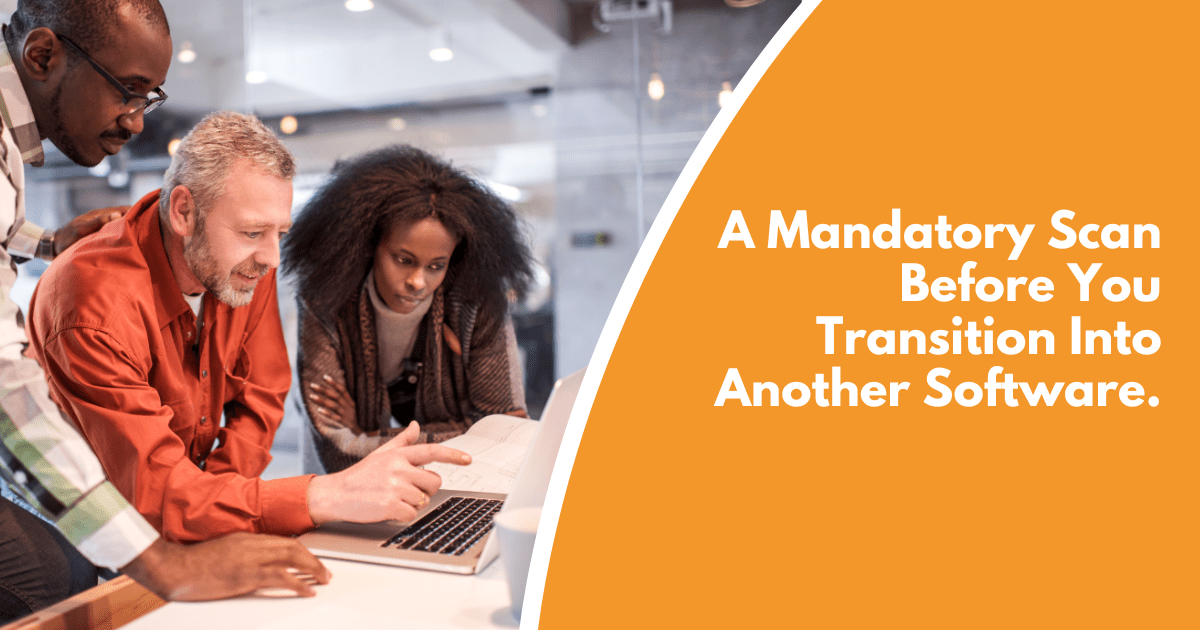Ensure You Have Outgrown QuickBooks Before You Move Out
January 25, 2023

January 25, 2023
QuickBooks is an accounting software that is widely used by small businesses. It is simple to navigate and can save business owners time and money. However, as businesses expand, their financial management processes grow more complex. These companies may need to scale up their accounting solution at some point.
However, businesses often migrate to software that may be overkill for their business. We call this oversold on ERP. According to experts, a significant reason why ERP implementations fail is that vendors tend to promise much more than what the software can deliver. Many ERP products are built for enterprise clients or larger mid-market customers who may have a much larger need for an ERP solution. However, growing SMBs may find all the bells and whistles unnecessary or rarely if ever used. The learning curve and added overheads to maintain a larger ERP are also causes for concern to many SMBs. Upon an evaluation, some organizations realize that there is no need to make the switch to an expensive ERP. One of the many reasons why businesses consider QuickBooks data migration is because its performance slows down. QuickBooks desktop can be optimized and customized to meet the needs of a growing business.
But, how can you tell if it’s time to start looking for a new accounting solution? Consider these warning signs that indicate it may be time to consider migrating your data from QuickBooks:
1. You are using other software to supplement QuickBooks.
If you are using a large selection of applications and add-ons to manage your finances, consider a more comprehensive solution. But before you decide, first examine what QuickBooks can do.
QuickBooks Enterprise, for example, is a more robust version of the software that can be customized to fit your business needs. It offers features like advanced inventory management, pricing rules, and tracking multiple locations.
2. You need to give access to more users.
As your business grows, you may need to give access to QuickBooks to more employees, contractors, or clients. QuickBooks Pro allows up to 3 users, and Premier gives access to 5. If you need to add more people, you’ll need to upgrade to QuickBooks Enterprise. This version allows for up to 40 users (Diamond). QuickBooks Online Advanced can accommodate up to 25 users.
If you require more users on your accounting system, it’s time to start looking at other options that can scale your business.
3. You need to manage inventory in multiple locations.
If you have a business with multiple locations, it may be necessary to upgrade to QuickBooks Enterprise Platinum or Diamond Edition. These software versions are the only ones that support the Advanced Inventory feature, which allows a business to track inventory in different locations, analyze inventory information by location, and link with e-commerce. QuickBooks Online Advanced integrates with industry-leading inventory solutions that will cater to most business needs.
Some businesses may require more sophisticated inventory management features than QuickBooks can offer. In this case, it’s time to look into an ERP solution that offers comprehensive inventory management capabilities.
4. You are looking for more customization options.
As your business grows, you may need to customize QuickBooks to meet your specific needs. QuickBooks Enterprise offers a number of customization options, including industry-specific solutions, advanced pricing rules, and tracking for multiple locations.
If these features still feel limiting, your business has outgrown QuickBooks.
5. You need to track data beyond financials.
QuickBooks is an accounting software program, so its main focus is financial data. However, there are other business intelligence (BI) needs that go beyond this. Fortunately, QuickBooks allows integrations from other software providers that can help bring everything together.
For example, you can connect QuickBooks to an app that performs analytics on your customer data. If the company needs to track and analyze data that QuickBooks or its partners can’t provide, it may be time to look for a new solution.
What happens next?
If, after an in-depth evaluation of QuickBooks, you find that it can no longer support your business, prepare to devote time to researching the right software. ERP solutions are complex, and you want to be sure that the one you choose will support your current business needs and have room to grow with you.
We recommend exploring the functionalities of mid-market software like Acumatica first before considering moving to full-blown enterprise solutions like Netsuite.
Migrating accounting data is not simply a task of exporting and importing files. It requires careful planning to ensure data integrity, security, and no business disruptions.
SaaS Direct specializes in accounting data conversions and data migrations with capabilities to convert 88+ software. With over 1500+ accounting data conversions delivered and over 25 years of cumulative ERP and accounting data migration experience, SaaS Direct helps businesses improve productivity and increase financial transparency. Talk to us today for an expert opinion on whether or not your business is prepared to move on from QuickBooks.
